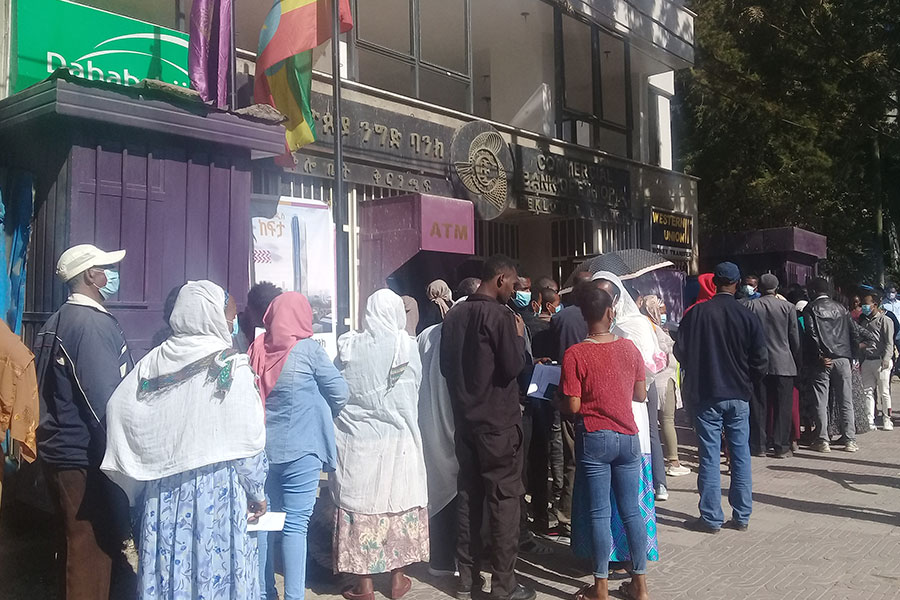
Fortune News | Aug 14,2022
Dec 19 , 2020
By Howard Davies
The benefits of central bank independence are accepted by almost everyone nowadays. And there is growing evidence that financial regulation works best – boosting the stability of the banking system – when regulators and supervisors have similar independence, writes Howard Davies, the first chairman of the United Kingdom’s Financial Services Authority.
There is a vast academic literature on central bank independence, and central bank governors address the topic at every opportunity. Most of the academic papers, and all of the governors, argue that a high degree of independence is associated with low inflation and monetary stability.
Some of these academic studies question the direction of causation, asking whether countries with highly inflation-averse populations – Germany being the most obvious example – are inclined to favor robust independence. But there is wide support for the general proposition that taking politicians out of the process of setting interest rates is associated with lower and more stable inflation. There is much evidence that, previously, the electoral cycle influenced interest-rate decisions, with damaging consequences.
Much less attention has been paid to the independence of financial regulators and, especially, banking supervisors. Many of the latter are of course part of central banks, but by no means all of them are.
Around a third of countries with significant banking systems operate with supervisors outside the central bank. That is true of Sweden, Japan, and Australia, for example. And in some cases, different independence regimes apply to monetary policy and supervision, even where both are brigaded within the central bank.
The question of how independent bank supervisors are is of more than theoretical interest. Regulatory and supervisory independence is one of the Basel Committee on Banking Supervision’s core principles. Yet according to the International Monetary Fund, it is the one with the lowest level of compliance across the countries the Fund reviews.
Banking supervisors’ perceived lack of independence in some Eurozone countries was one of the reasons for establishing the European Union’s banking union. There is evidence that banks with direct political involvement were subject to indulgent supervision and performed especially poorly in the 2008 global financial crisis. Their bad debts were higher than might have been expected.
More recently, there have been questions about the closeness of German supervisors to the country’s finance ministry. After the accounting scandal that brought about the insolvency of the payment processing and financial services firm Wirecard, the European Securities and Markets Authority pointed to “a heightened risk of influence by the Ministry of Finance given the frequency and detail of reporting” in the Wirecard case.
Against this background, the Bank of England has produced timely new research on the link between regulatory independence and financial stability. The authors construct a novel index of independence that resembles the indices used in the monetary policy arena, but with differences in some areas.
The BOE paper incorporates the procedures for appointing the head of the regulator: Is there a degree of independence in the process? How long is the head’s term? How easy is it to dismiss him or her?
The authors also look at the supervisor’s ability to impose regulations without political approval, and at the budget process. Some can fund themselves through a power to levy fees on regulated firms; others need to go cap in hand to the government or legislature for money, creating the possibility of political lobbying by banks to starve the regulator of funds.
Having constructed the index, the authors then examine whether supervisory independence is positively correlated with financial stability. Compared to monetary stability, financial stability is a slippery concept. We tend to discover all too painfully when it is absent, but attempts to develop indices of its presence have proven to be difficult. Many explain the last crisis very well but are somewhat less useful for predicting the next one.
As a proxy for financial stability, the BOE authors choose the level of non-performing loans in the banking system. It is not a perfect measure, perhaps, but it has the benefit of being available, on a broadly comparable basis, across a range of countries and for a meaningful number of years.
Mapping the two datasets against each other produces strong conclusions. There has been a steady increase in supervisory independence over the last two decades. And, in the authors’ words, “reforms that bring greater regulatory and supervisory independence are associated with lower non-performing loans in banks’ balance sheets [and] … overall, our results show that increasing the independence of regulators and supervisors is beneficial for financial stability.”
Furthermore, they produce evidence that the tougher oversight associated with independent supervisors does not adversely affect the efficiency or profitability of the banking system. One might reasonably be concerned that tighter supervision might impose costly constraints, yet that does not seem to be the case. Bank efficiency, defined as the cost-to-income ratio, tends to improve when supervisors are made more independent. And there is no negative impact on banks’ bottom line.
So what is not to like? Are we in “free lunch” territory?
Not quite. There is one drawback, which may give politicians pause. The relationship between independence and the quantity of bank lending is negative. In other words, if independent supervisors are more rigorous, banks tend to lend a little less. The scale of the effect is not dramatic, but it is negative and it is significant.
It is possible that this effect is transitional and would fade as more disciplined supervision is maintained. Moreover, the lending that has not taken place might have been to non-viable companies or over-extended consumers. It is not obvious that such lending is especially beneficial to growth and productivity.
In the public domain at least, regulatory and supervisory independence has not acquired the reputation of central bank independence. It does not have its own well-used acronym, like CBI. When RSI is used, it typically refers to repetitive strain injury. The BOE research adds up to a strong case for changing that.
PUBLISHED ON
Dec 19,2020 [ VOL
21 , NO
1077]


Fortune News | Aug 14,2022

Commentaries | May 14,2022

Radar | Dec 04,2022

Fortune News | Sep 24,2022

Commentaries | Apr 06,2024

Commentaries | Jun 15,2024

Fortune News | Mar 12,2022

My Opinion | Apr 22,2022

Commentaries | Apr 06,2019

Commentaries | Sep 28,2019

My Opinion | 132041 Views | Aug 14,2021

My Opinion | 128437 Views | Aug 21,2021

My Opinion | 126364 Views | Sep 10,2021

My Opinion | 123983 Views | Aug 07,2021





Dec 22 , 2024 . By TIZITA SHEWAFERAW
Charged with transforming colossal state-owned enterprises into modern and competitiv...

Aug 18 , 2024 . By AKSAH ITALO
Although predictable Yonas Zerihun's job in the ride-hailing service is not immune to...

Jul 28 , 2024 . By TIZITA SHEWAFERAW
Unhabitual, perhaps too many, Samuel Gebreyohannes, 38, used to occasionally enjoy a couple of beers at breakfast. However, he recently swit...

Jul 13 , 2024 . By AKSAH ITALO
Investors who rely on tractors, trucks, and field vehicles for commuting, transporting commodities, and f...

Jul 12 , 2025
Political leaders and their policy advisors often promise great leaps forward, yet th...

Jul 5 , 2025
Six years ago, Ethiopia was the darling of international liberal commentators. A year...

Jun 28 , 2025
Meseret Damtie, the assertive auditor general, has never been shy about naming names...

Jun 21 , 2025
A well-worn adage says, “Budget is not destiny, but it is direction.” Examining t...

Jul 13 , 2025 . By YITBAREK GETACHEW
The Addis Abeba City Revenue Bureau has introduced a new directive set to reshape how...

Jul 13 , 2025 . By BEZAWIT HULUAGER
Addis Abeba has approved a record 350 billion Br budget for the 2025/26 fiscal year,...

Jul 13 , 2025 . By RUTH BERHANU
The Addis Abeba Revenue Bureau has scrapped a value-added tax (VAT) on unprocessed ve...

Jul 13 , 2025 . By NAHOM AYELE
Federal lawmakers have finally brought closure to a protracted and contentious tax de...